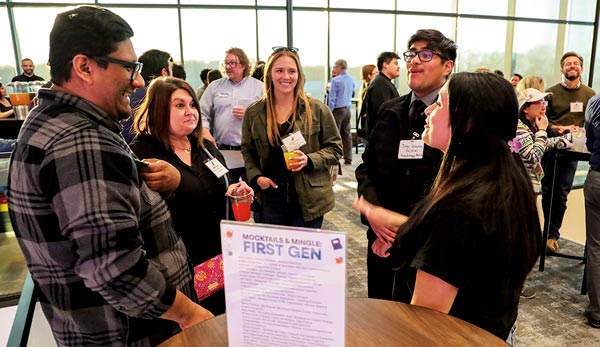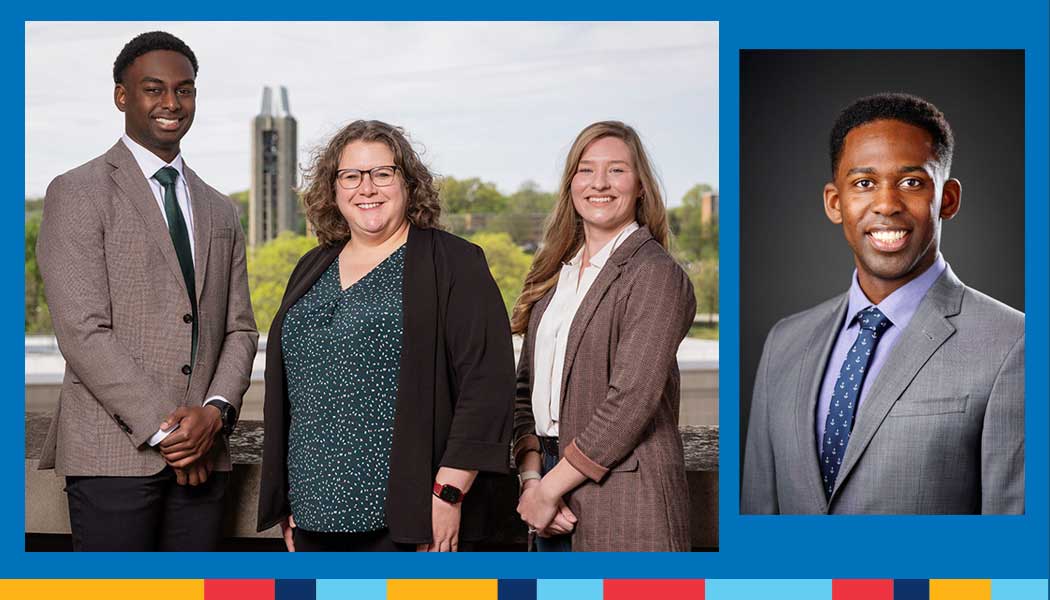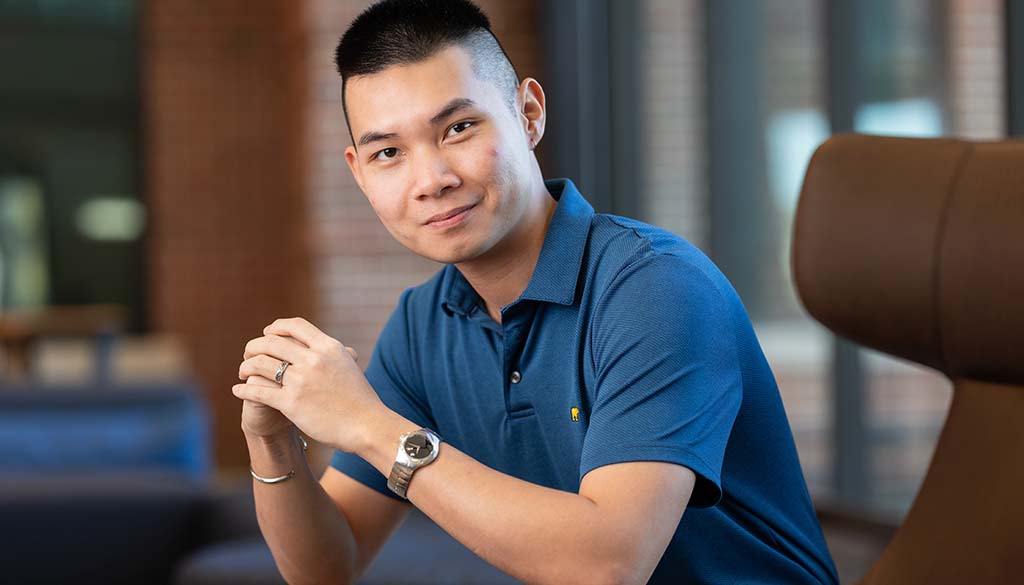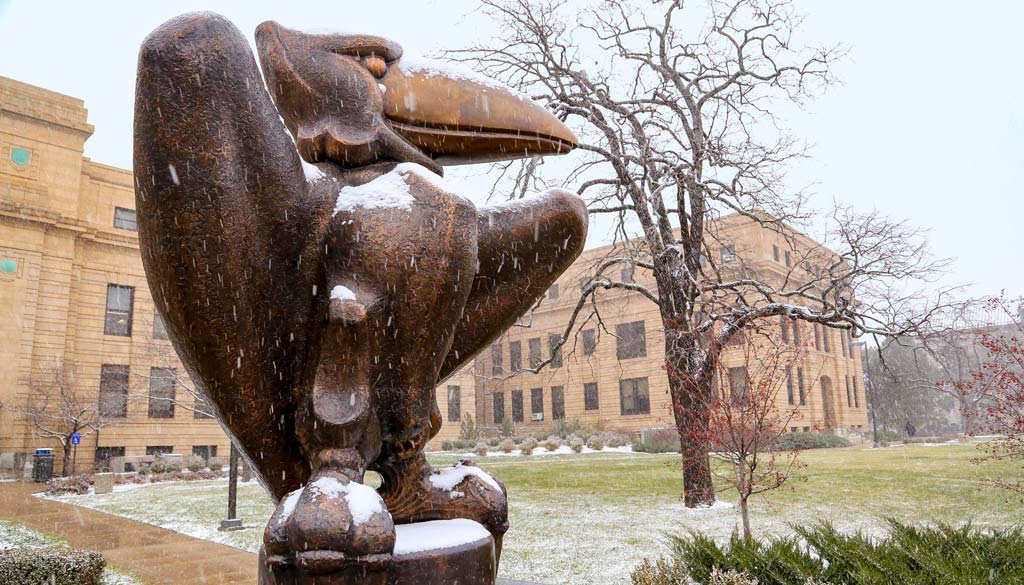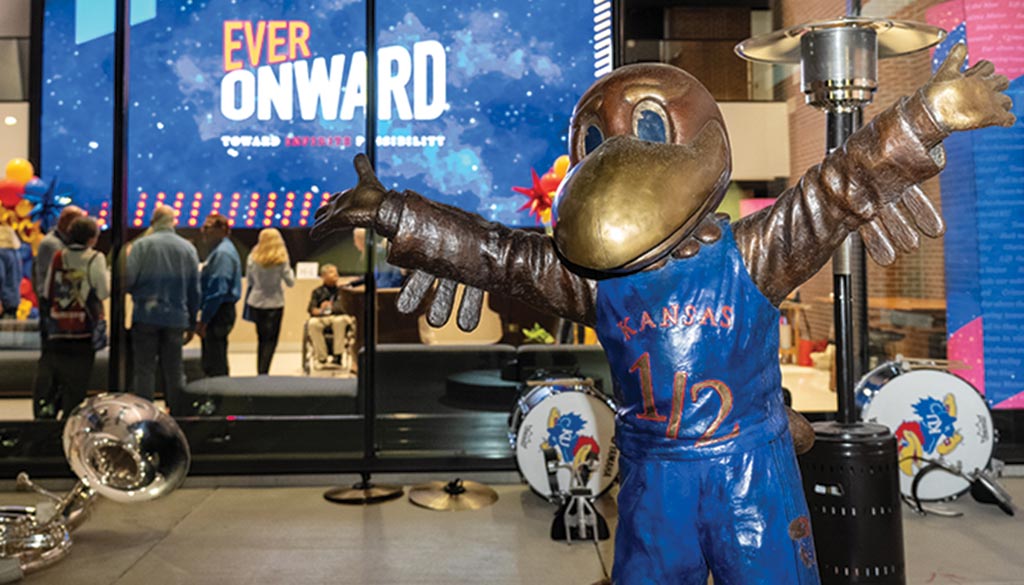Jayhawk Global: An education evolution
Hub for online programs will expand KU’s learning community.
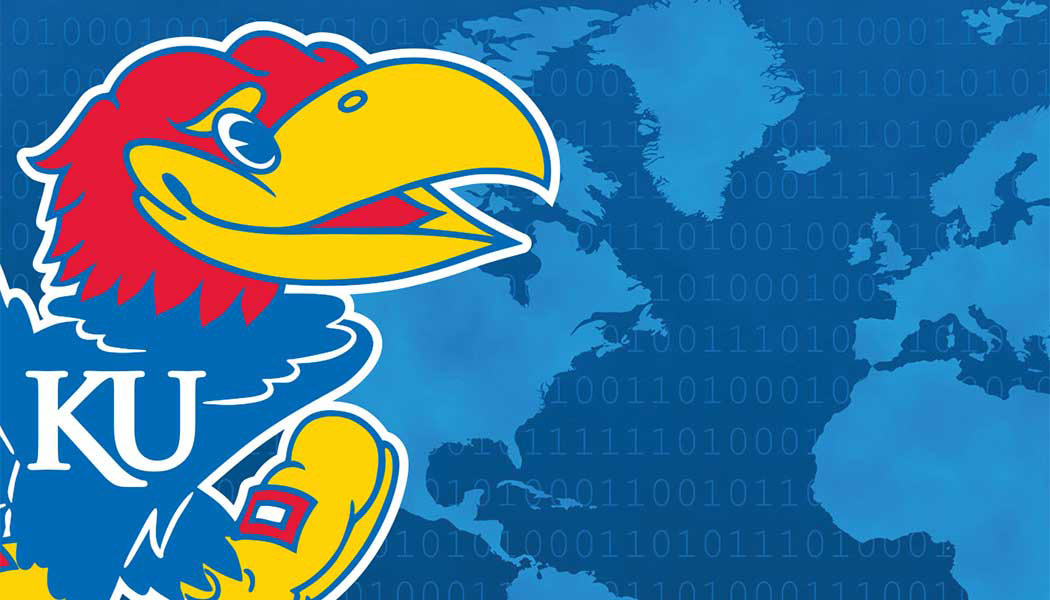
Learners of all ages, in all places, and in all stages of their professional and personal lives now can access the University’s online undergraduate and graduate courses and degree programs—as well as certificates and professional training and development—through one central entry point: Jayhawk Global. The ambitious venture promises to “meet learners where they are” by uniting and streamlining online offerings and student support services led by faculty and staff of the Lawrence campus and KU Edwards campus in Overland Park.
Last fall, more than 1,100 students enrolled in online courses through Jayhawk Global, and the website currently lists more than 150 offerings (see “Jayhawk Global: A snapshot,” below), including the School of Journalism’s online master’s degree in digital and online marketing communications, which Forbes recently named among the best online marketing master’s programs for 2024.
Jayhawk Global began in early 2022, when Barbara Bichelmeyer, provost and executive vice chancellor of the two campuses, designated the project as a key initiative of the Jayhawks Rising strategic plan, following months of study by deans and vice provosts, who thoroughly evaluated all of KU’s online courses, many of which had launched in 2020 after the pandemic forced KU to close campuses and move classes online.
Jayhawk Global strives to increase the enrollment revenue that is vital to KU’s strength and financial health by delivering KU’s acclaimed teaching and student support services to new students far beyond Lawrence and Overland Park—while preserving the missions of the two locations.
“We want to make sure that we continue to keep what I call the ‘research residential experience,’ which is the Lawrence campus, as robust as it can possibly be—and to fill the Hill with students who are able to and want to have that experience,” says Bichelmeyer, j’82, c’86, g’88, PhD’92.
Last fall’s record-setting freshman class of 5,259 new Jayhawks is testament to KU’s successful student recruitment, bucking regional and national trends. But maintaining enrollment will become far more difficult in 2026, when all of higher education faces the dreaded “enrollment cliff,” the gloomy name for the dramatic plunge in the population of high school graduates that will occur 18 years after birth rates fell during the Great Recession.
“If we know that we’re going to be working hard just to keep that enrollment steady as the demographic cliff comes,” Bichelmeyer says, “then we have to ask ourselves, ‘Where are other opportunities for our growth?’”
Bichelmeyer identifies three opportunities for growth beyond the Lawrence campus. First, there are those she calls “learn and earn” experiences at KU Edwards campus. “We must make sure we’re meeting the workforce development needs of the state and particularly of the Kansas City region,” she says.
The second opportunity is to develop more online offerings, and the third is to develop competency-based programs, she adds.
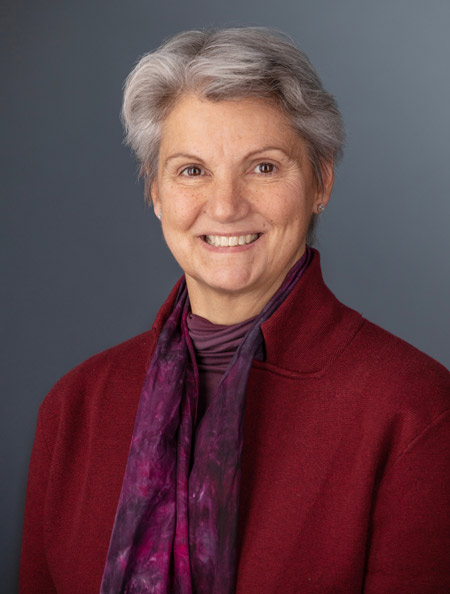
In February 2022, Bichelmeyer named Michelle Mohr Carney as founding vice provost to lead the launch of Jayhawk Global. Carney retained her role as dean of the School of Social Welfare.
Carney came to KU as dean in 2017 from Arizona State University, where she directed the School of Social Work and led a team that created a new online master’s degree in social work. In only three years, ASU’s online master’s program grew from 25 students to 900.
“We did a lot of research, and we didn’t just put the curriculum that was already existing online,” Carney recalls. “We built a curriculum that we felt filled the gaps, with faculty support and doing field education all over the world.”
Drawing on her ASU experience, along with KU’s record of providing master’s programs in social work in other Kansas communities, including Garden City and Salina, Carney and her KU team created online master’s and doctoral programs as the first degrees offered through Jayhawk Global. The demand for master’s in social work degrees is high, she says, “because our students work full time. Many are juggling family life. So not having to travel is key.”
In addition to new online courses and degree programs, Jayhawk Global unites long-standing noncredit KU programs for professional development and training.
“We’ve done professional continuing education at KU for 100 years,” Carney says. “We’ve certified firefighters, and the Osher Lifelong Learning Institute has been part of KU for many years. We think of Jayhawk Global as learning across the continuum, from basic training to a doctoral degree in education or social work and everything in between. And because it’s all housed under the umbrella of Jayhawk Global, there’s synergy and we can be agile.”
Carney credits KU partners in the academic units, enrollment management, academic success, student support services, and instructional design for collaborating to create the new hub. “Our instructional designers help ensure that online courses are fun, engaging and thoughtful,” she says. “A student knows exactly how to work through a course, and the faculty member has the support. The faculty member remains the content expert, but instructional design is a critical piece to ensure the content is high-quality and engaging.”
From the outset, Carney and Bichelmeyer had agreed that Carney’s role as founding vice provost would be temporary.
By last fall, the team had completed the assignment to build what Carney describes as “pretty sturdy scaffolding” for Jayhawk Global, and she was ready to focus solely on her role as dean of social welfare. She concluded her Jayhawk Global duties on Dec. 31, and Bichelmeyer appointed Neal Kingston to succeed her as vice provost of Jayhawk Global and Competency-Based Education.
Kingston, who first joined the KU faculty in summer 2006, retains his role as Distinguished Professor of Educational Psychology and director of KU’s Achievement and Assessment Institute, where researchers have guided assessments for the state of Kansas for more than 40 years. Since 2010, KU also has created Dynamic Learning Maps Alternate Assessments for 23 state departments of education, a project funded by a $22 million grant from the U.S. Department of Education.
Kingston and Carney co-chair KU’s Quality Initiative in preparation for the 2025 accreditation review by the Higher Learning Commission (which occurs every 10 years), and they collaborated on the Center for Certification and Competency-Based Education (C3BE). Kingston will lead the Jayhawk Global team in developing new, competency-based courses, slated to begin in 2025, which will be delivered under the brand name Jayhawk Flex.
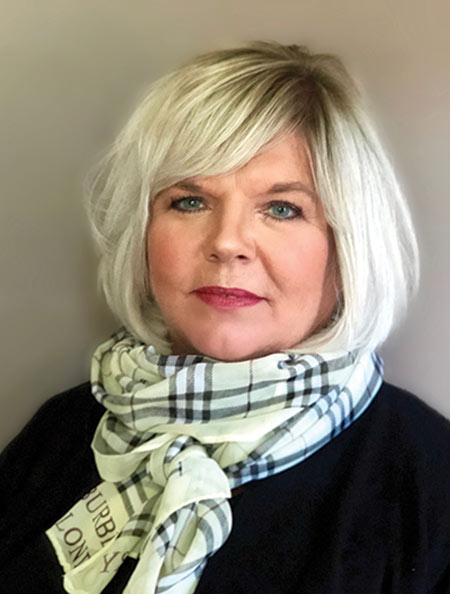
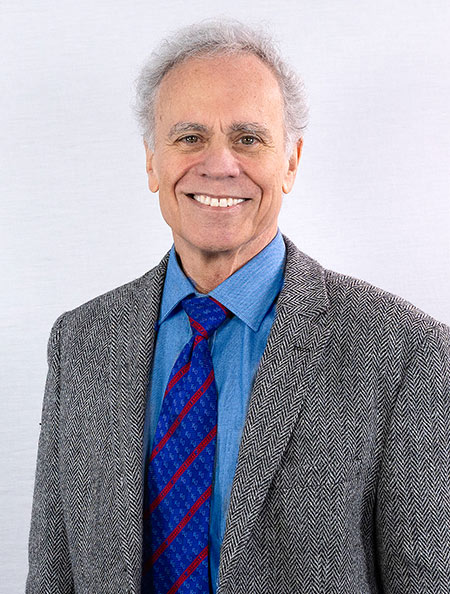
Competency-based education serves people whose lives require more flexibility than traditional on-campus programs or even online courses, Kingston explains. “There are all sorts of people who can’t predict in advance that they’re going to be available at 3:00 on Wednesday,” he says, “whether it’s because they’re caring for an aging parent, or they have a young child, or they have physical conditions or a chronic illness and they don’t know if they’re going to have a good day on Wednesday or a bad day on Wednesday—or they’re working in a job and if a project comes along, hell or high water, that project has to be completed.”
KU’s version of competency-based education, which Kingston also refers to as “asynchronous direct assessment,” frees students not only from place, but also from time, he adds. They enroll in entire programs rather than individual courses, working at their own pace to master a certain number of competencies, advancing from one skill to the next as they demonstrate mastery based on assessments. Students also can advance based on their prior learning or experience, he says: “Whether you were in the military, working on a job, had a hobby, or just had an interest on your own, you deserve just as much credit—if you can demonstrate at the same level of anyone else who’s enrolled in the program.”
Kingston’s C3BE research teams will continue their studies of learning and assessments, and those studies will inform the competency-based programs that are added to Jayhawk Global, he says.
Bichelmeyer emphasizes that Jayhawk Global will help fulfill the vision of KU that guides the Jayhawks Rising strategic plan: “an exceptional learning community that lifts each member and advances society.”
“We’re all engaged in learning together,” she says, “and the kind of format in which that learning occurs should be as variable as the kind of people who want to be connected.
“If we have a great curriculum in cybersecurity, we shouldn’t just be delivering it on the Hill. We should be delivering it through workforce development programs at Edwards and through online graduate programs and through noncredit-bearing programming and through competency-based education for military people or for whoever has worked in the field, because the demand is so great.”
In addition to offering education to meet society’s pressing challenges and increase enrollment revenue, Jayhawk Global will expand KU’s learning community to include students who have not yet participated, Kingston says.
“To me, the leading reason is that there are potential learners who have not been able to access higher education and the opportunities it brings,” he says, “so the University can do well by doing good, and that is a confluence that does not always occur. We’re not going to ignore that opportunity.”
Jayhawk Global: A snapshot
The University’s education innovation center includes more than 150 courses, degree programs, certificates, webinars, workshops and other offerings in the categories below. Visit the Jayhawk Global website for detailed lists and additional information.
Online Undergraduate Programs
- Bachelor’s degrees
- Academic minors
- Certificates
Online Graduate Programs
- Master’s degrees
- Doctoral degrees
- Certificates
Noncredit Programs
- Professional programs
—Aerospace
—Boot Camps
—Leadership
—Other professional development - Osher Lifelong Learning Institute
- Kansas Fire & Rescue Training Institute
Coming in 2025
- Competency-based education, known as Jayhawk Flex
Jennifer Jackson Sanner, j’81, is editor of Kansas Alumni magazine.
/
